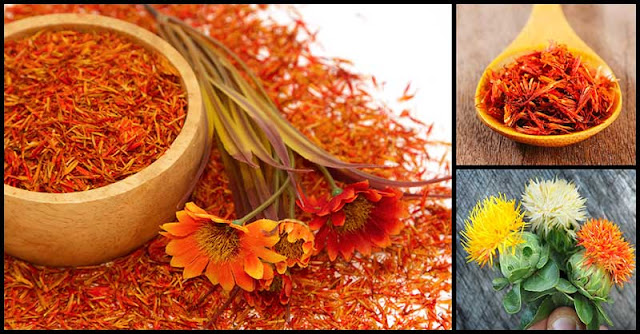Safflower is one of the oldest crops that is widely cultivated in Europe, India, China, and the U.S. It has an extremely long taproot that enables it to reach deep into the soil to retrieve water thus making it a perfect crop for arid farming areas. Its flower and the oil from its seeds are used as medicine. Aside from this, safflower has been used traditionally in the food and textile industry.
Safflower Against Cancer
Cancer is a complex group of diseases with many possible causes. Some of these causes are lifestyle-related factors (tobacco, alcohol, foods consumed), work and living environment, bacteria and viruses, radiation, certain drugs, and biological factors.
Results of a study conducted by researchers from Zhejiang Chinese Medical University have found that safflower yellow (SY), an active component present in safflower, can stop the formation of cell membrane protrusions that support tumor cell invasion, thus making it a possible treatment for cancer.
In this in vitro study, which was published in The American Journal of Chinese Medicine, experts used breast cancer cells and EGF-meditated time- and dose-dependent cell response profiles to screen for the activity of SY. For them to evaluate the antimetastatic role of SY, an orthotopic lung metastasis animal model via intravenous injection of breast cancer cells was established.
At the end of the study, researchers have found the following:
Safflower yellow inhibited cytoskeletal rearrangement thus preventing EGF-mediated time- and dose-dependent cell responses. The cytoskeleton is the frame that gives shapes to cells, offers support, and facilitates movement through three main components: microfilaments, intermediate filaments, and microtubules. One of its main roles is to control cell function, cell division and cell interaction with other tissues. They can contribute to the metastatic ability of cancer cells (spreading of cancer cells) and drug resistance once they undergo mutations and are abnormally expressed.
A reduction in the number of circulating tumor cells was also found to retain in the lung capillaries of the animal model. Experts believed that the anti-metastatic effect of SY was due to its ability to inhibit invadopodia formation, which occurs mainly through Src-dependent cytoskeleton rearrangement.
Lastly, the team has found that SY can help prevent the migration and the pulmonary metastasis of breast cancer cells.
Due to these findings, experts concluded that safflower can possibly be an agent for the treatment of breast cancer.
Aside from these effects, the use of safflower has also been associated with the following health benefits.
- Helps improve blood sugar levels
- Helps lower cholesterol, boosts heart health
- Soothes dry skin
- Fights inflammation
- Healthy source of fatty acids.









